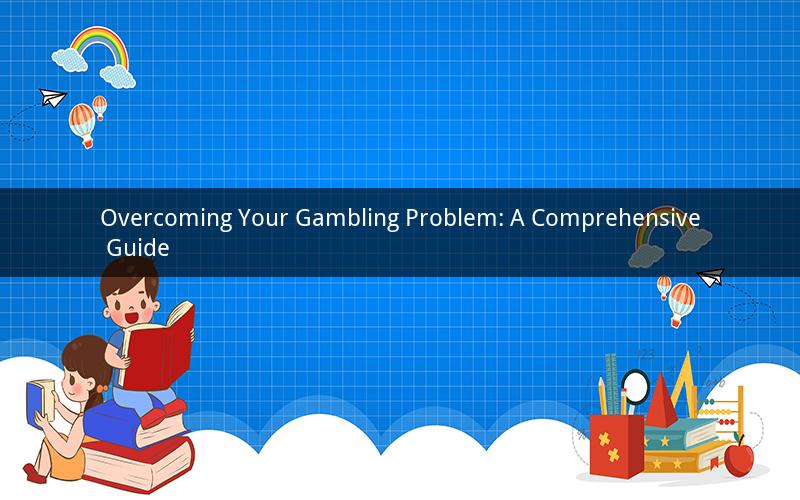
Gambling can be an enjoyable pastime for many, but for some, it can spiral into a problematic addiction. If you find yourself struggling with a gambling problem, it's important to understand the steps you can take to overcome it. This article will explore various strategies and resources to help you break free from the grip of gambling addiction.
1. Acknowledge the Problem
The first step in overcoming a gambling problem is to acknowledge that you have one. Denial is a common obstacle, but it's crucial to face the reality of your addiction. Reflect on how gambling has impacted your life, including financial, emotional, and social consequences. Recognize that you have the power to change and take control of your situation.
2. Seek Professional Help
Professional help is essential in overcoming a gambling problem. Consider seeking the assistance of a therapist specializing in addiction. Therapy can provide you with personalized strategies to cope with cravings, develop healthy coping mechanisms, and address underlying issues contributing to your addiction.
3. Build a Support System
Surrounding yourself with a supportive network is vital in your recovery journey. Share your struggles with trusted friends and family members who can offer encouragement and understanding. Joining a support group, such as Gamblers Anonymous, can also provide a sense of community and shared experiences with others facing similar challenges.
4. Create a Financial Plan
Gambling addiction often leads to financial difficulties. To overcome this aspect of your problem, create a financial plan that includes budgeting, setting limits, and seeking professional financial advice if necessary. Consider seeking assistance from a credit counselor or financial advisor to help you manage your debts and regain financial stability.
5. Develop Healthy Coping Mechanisms
Identifying and developing healthy coping mechanisms is crucial in overcoming a gambling problem. Engage in activities that provide fulfillment and distract you from the urge to gamble. These activities can include exercise, hobbies, and socializing with friends and family. Consider joining a sports team, taking up a new hobby, or volunteering to keep your mind occupied and prevent the urge to gamble.
6. Stay Away from Triggers
Identifying and avoiding triggers is essential in overcoming a gambling problem. Triggers can be places, people, or situations that remind you of gambling and increase the urge to engage in it. Keep a list of triggers and develop strategies to avoid them or cope with them effectively.
7. Monitor Your Progress
Regularly monitoring your progress is crucial in maintaining your recovery. Keep a journal to track your gambling habits, triggers, and coping mechanisms. Celebrate small victories and acknowledge setbacks as opportunities for growth. Remember that overcoming a gambling problem is a journey, and progress may be slow at times.
8. Continue Support and Education
Recovery from a gambling problem is an ongoing process. Continue seeking support from professionals, support groups, and friends and family. Educate yourself about gambling addiction, its consequences, and effective coping strategies. Staying informed can help you maintain a strong foundation for long-term recovery.
Questions and Answers:
1. Q: How long does it take to overcome a gambling problem?
A: The duration of recovery varies for each individual. Some may experience relief within a few months, while others may need years of ongoing support and treatment.
2. Q: Can I still enjoy gambling in moderation after overcoming my problem?
A: It's possible to enjoy gambling in moderation after overcoming a problem, but it's important to establish strict boundaries and be cautious. Consider seeking professional advice on how to safely incorporate gambling into your life.
3. Q: Can I overcome a gambling problem on my own?
A: While it's possible to overcome a gambling problem on your own, seeking professional help and support from others can significantly increase your chances of long-term recovery.
4. Q: Will I always be vulnerable to a gambling relapse?
A: Relapse is a possibility in recovery, but it doesn't mean you've failed. Recognize the signs of a potential relapse and develop strategies to cope with them effectively. Remember that relapse is an opportunity to learn and grow.
5. Q: Can I overcome a gambling problem if I have a mental health disorder?
A: Yes, it's possible to overcome a gambling problem even if you have a mental health disorder. In fact, addressing both the gambling addiction and the underlying mental health disorder can enhance your chances of successful recovery. Seek professional help to address both aspects of your condition.